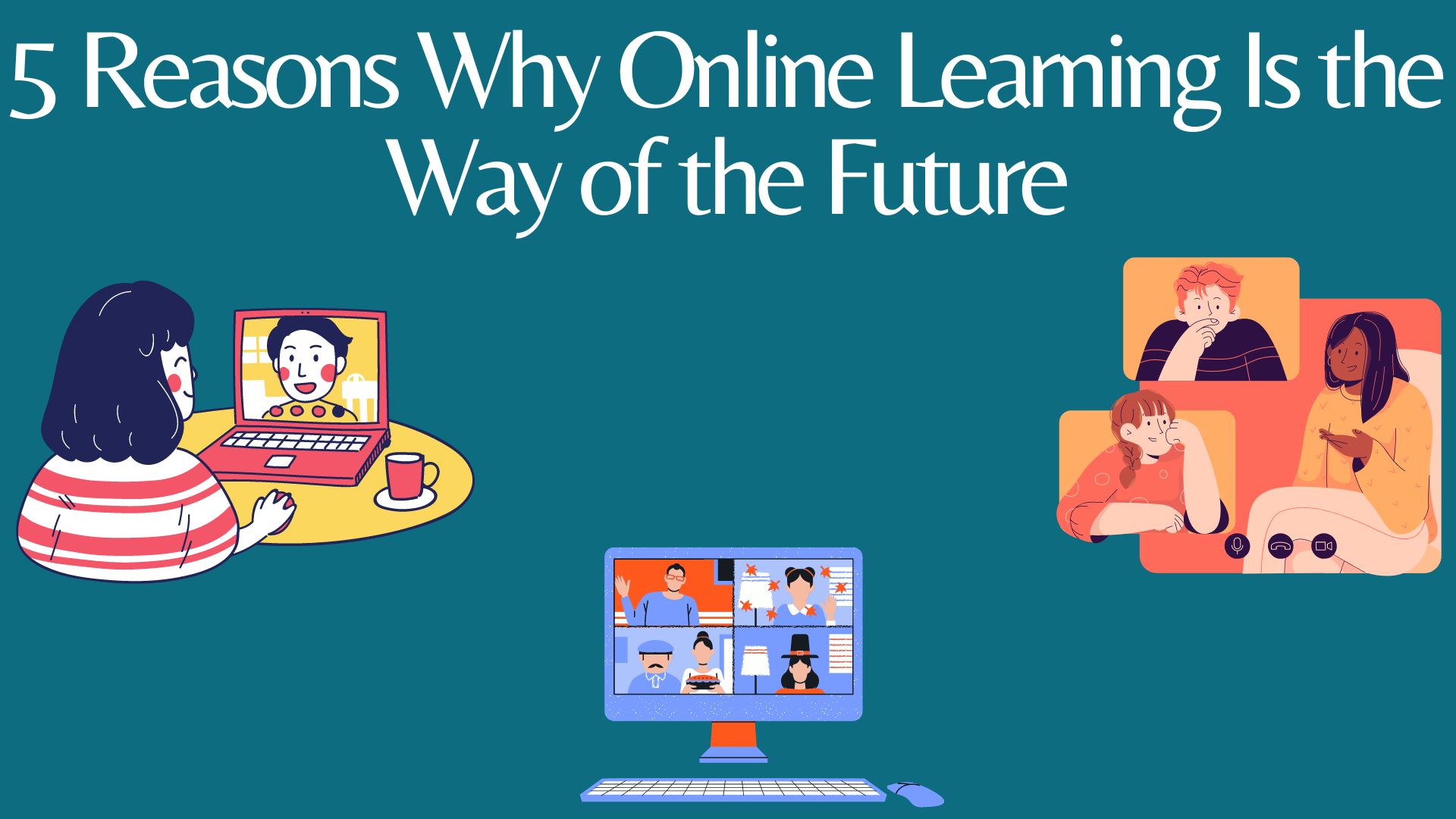Welcome to “5 Reasons Why Online Learning Is the Future.” The education sector has undergone significant transformation in recent years as a result of the rapid advancement of technology. Online classes have grown in popularity as an alternative to traditional classroom education, providing numerous advantages to students, educators, and educational institutions.
We will discuss five reasons why online classes are the way of the future in this blog, including their flexibility, accessibility, cost-effectiveness, personalization, and innovation. Understanding the potential of online learning can help you prepare for the future of education, whether you are a student or an educator.
Consider the following benefits of digital learning:
#1: Flexible Scheduling And Convenience
Students can study and learn at their own pace, location, and time with online learning. They can take classes from the comfort of their own homes, libraries, or coffee shops, eliminating the need to commute to a physical classroom. This adaptability enables them to balance academic pursuits with other obligations such as work, family, or hobbies.
Students can study online during the day, at night, on weekends, or whenever it is convenient for them. They can also pause and rewind lectures, review notes, and take quizzes at their own pace, which can aid in memory retention.
Furthermore, with online learning, students have 24/7 access to course materials, allowing them to study whenever they have the time and motivation, rather than being constrained by a rigid class schedule. Overall, virtual classes provide unparalleled convenience and flexibility, which is why it is growing in popularity among students of all ages and backgrounds.
#2: Access To A Wide Range Of Courses And Resources
One of the most significant advantages of online learning is the wide range of courses and resources available. Unlike traditional education, which often limits students to courses offered by their local institutions, virtual classes allow students to enroll in courses from all over the world.
This means that students have access to a wide range of courses, many of which are unavailable in their immediate area. Furthermore, online courses frequently provide a wealth of resources, such as video lectures, interactive learning modules, and discussion forums, to assist students in deepening their understanding of course materials.
With such a diverse range of courses and resources at their disposal, online students can truly tailor their education to their specific interests and goals.
#3: Cost-Effective Online Learning Options
When compared to traditional learning methods, online learning can be a more cost-effective option. Online courses are typically less expensive than in-person courses, and students can save money on transportation, lodging, and other costs.
Furthermore, many online courses provide free or low-cost options, making education more accessible. Students can save money by using open educational resources or purchasing digital textbooks instead of expensive physical ones.
Because of its low cost, online learning is an appealing option for students who want to further their education without incurring significant financial burdens.
#4: Improved Communication And Collaboration
Online learning has also transformed communication and collaboration between students and teachers. Learners can easily communicate and collaborate with their peers and instructors thanks to the availability of various online tools such as video conferencing, chat rooms, discussion forums, and email. This improves the learning experience by encouraging active participation and engagement by allowing students to share ideas, ask questions, and provide feedback to one another.
Furthermore, online learning allows students to work together on projects and assignments regardless of their physical location. Learners can collaborate on group projects, share resources, and provide feedback to one another, which improves their critical thinking and problem-solving abilities. This enhanced communication and collaboration also prepares students for the modern workplace, where remote work and collaboration are becoming more common.
#5: Personalized Online Learning Experience
Digital learning provides a personalized learning experience that can be tailored to the needs and interests of each student. Online classes, as opposed to traditional classrooms where students are expected to keep up with the rest of the class, allow students to learn at their own pace. This means that students who need more time to grasp a concept can do so without feeling rushed. Similarly, students who quickly grasp a concept can move on to more challenging material without waiting for the rest of the class to catch up.
Furthermore, virtual class platforms can collect student progress data and use it to recommend personalized learning paths. For example, if a student is having difficulty understanding a particular topic, the platform can suggest additional resources and exercises to assist them.
Furthermore, virtual class platforms can provide students with access to a wide range of learning materials, such as videos, quizzes, and interactive exercises, allowing them to learn effectively.
Overall, personalized learning is a significant benefit of virtual lessons. Virtual classes can help students learn more effectively and efficiently by tailoring the learning experience to each student’s needs.
Frequently Asked Questions About Online Learning
Because of its flexibility, convenience, access to resources, cost-effectiveness, and personalized learning experience, online learning is becoming more popular.
Online learning can be just as effective as traditional classroom learning, and some studies even suggest that it may be more effective because of the personalized learning experience.
To access online learning materials, you must have a reliable internet connection and a device such as a computer, tablet, or smartphone.
Yes, many colleges and universities offer online degree and certificate programs.
In an online learning environment, staying organized, setting goals, and creating a dedicated study space can help you stay motivated. Staying in touch with classmates and seeking help from instructors can also be beneficial.
Conclusion
In conclusion, online learning is rapidly gaining popularity and reshaping the educational landscape. Virtual classes are the future of education because of their flexibility, convenience, cost-effectiveness, access to a wide range of courses and resources, improved communication and collaboration, and personalized learning experience.
As technology advances and more institutions embrace online learning, it is critical to comprehend the benefits and adapt to this mode of instruction. The future of education has arrived, and it is thrilling!


